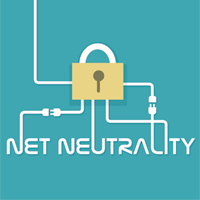Net Neutrality Repealed: The End of SEO As We Know It?

Have you noticed all the recent headlines about net neutrality? If not, you should be aware that on December 14, 2017, the net neutrality act put into place by President Obama was revoked.
If you aren't familiar with the purpose of net neutrality regulations, you are not alone. A large percentage of Internet users don't realize what it is or how it could affect them. Not to worry though, here is a quick overview.
What is Net Neutrality?

Net neutrality legislation was put into place to prevent Internet service providers from discriminating against or showing favoritism toward certain websites. For example, let's say your cable and Internet company offers a streaming video service, they could now intentionally slow down the stream of competing services such as Netflix, giving themselves an unfair advantage.
How Will It Impact Internet Users?
What's more, without net neutrality in place, broadband providers will be able to charge consumers and companies varying rates. Let's say you want to use Netflix (or other streaming video sites), you could be charged more for a package that allows unrestricted access to those types of sites than someone else who only uses their Internet for email and reading newspapers.
You, the consumer, aren't the only one that could be impacted. Just as you may have to pay more to get Internet service that allows high speed video streaming, the company offering the streaming video (i.e., Netflix) could be forced to pay more to keep high speed access available to their service.
What Does This Mean for SEO?
Currently, websites all have an equal opportunity to be found and visited. Without legislation in place to keep it that way, the stage is being set for large, established companies to be able to push out "the little guy" much like with current TV stations.
In a "pay to play" environment, large companies could put their websites in an express lane of sorts, giving them an advantage over similar services. Let's say that a new streaming video service wants to compete with Netflix. Without the same funding, a new company, even if they have a better service, could be put at a major disadvantage by the Internet service providers (ISPs) who slow access to their site. This is of course bad for the new company and bad for us as consumers, because our freedom to fairly evaluate two services on a level playing field is being pulled from beneath us.
Specific to SEO, a lack of legislation could mean that sites that rank well may not get the traffic or customers they did in the past. Beyond that, when you consider how highly Google values website speed, sites that are paying for "express lane" access to their sites will have a clear advantage, based on money and not merit. There is no doubt that the impact of SEO could be strongly impacted by an unregulated internet market.
The Internet has become an integral part of our lives. Even though past legislation protecting Internet equality has been killed, I highly doubt it will take full effect before it ends up in court. It will take months if not years to see the full impact of an unregulated Internet and chances are, before enough time has passed to allow an online doomsday scenario, major companies (with plenty of lobbyists) will get their day in court, and help shape future legislation that keeps the Internet from turning into a pay to play only source of entertainment and information. For you, the website owner or the online marketing professional, don't start looking for a new career just yet, the SEO industry isn't going away for quite some time.
May SEO as we know it change in the next couple years? Absolutely, but change and evolution are just part of the game, good marketers will evolve with change and bad ones will disappear.
About the Author









